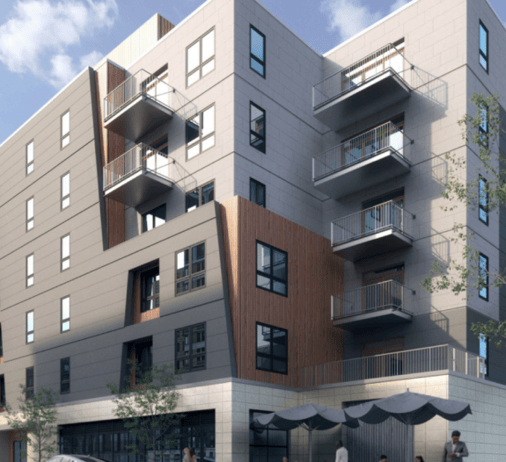Boston’s Multifamily Market: Q1 2025 Overview
Boston’s Multifamily Market: Q1 2025 Snapshot
A Strong Start to the Year—and Stronger Signs Ahead
Boston’s multifamily market kicked off 2025 with signs of renewed stability and long-term potential. Following several years of pandemic-driven volatility, high construction activity, and interest rate uncertainty, Q1 data reveals a market moving toward equilibrium. The fundamentals are starting to align again, with encouraging trends across absorption, rent growth, and investment activity.
Here’s a closer look at what’s shaping the Boston multifamily landscape—and what it means for developers, investors, and owners.
Vacancy Trends: Stabilization in Motion
The metro-wide vacancy rate landed at 5.5% in Q1 2025, marking a modest 10 basis point decline year-over-year. While still above the sub-5% lows seen in 2022, the current rate suggests the market is absorbing new inventory at a steady pace. Over the past 12 months, net absorption totaled 7,177 units—an encouraging figure in line with the region’s long-term demand profile.
Urban submarkets such as Somerville/Charlestown and Allston/Brighton, along with suburban areas like South Plymouth County and South Shore, led the absorption charge. However, vacancy at 4 & 5 Star properties remains elevated at 7.9%, signaling some lag in demand at the top end of the market. That said, projections call for this rate to drop below 6.5% in the second half of the year.
Rent Growth: Cooling from the Peak, Still Leading Nationally
Year-over-year asking rent growth came in at 2.0%, a significant step down from the near double-digit rates seen in early 2022—but still outpacing the national average of 1.1%. Boston’s average asking rent now stands at $2,914 per month, placing it among the top-tier U.S. markets for rental pricing.
Rent growth has been strongest in mid-market and suburban areas like Metro West, Lowell/Dracut, and Lawrence/Haverhill. Meanwhile, luxury-heavy markets such as South Boston/Seaport have seen softer performance. Looking ahead, rents are expected to accelerate in the back half of the year as the development pipeline thins and leasing velocity picks up.
Development Activity: Slower Starts, Smarter Strategy
Supply growth has begun to moderate. After a long stretch of heavy deliveries, just 7,300 units came online in 2024—the lowest annual figure since 2016. This reflects developers’ caution in the face of elevated construction costs and tight financing conditions.
Currently, 15,305 units are under construction, representing 5.4% of inventory. Nearly 40% of that pipeline is concentrated in four submarkets, including Everett/Malden/Medford/Melrose and Route 1 North. Notably, 30% of all units underway fall into the 3 Star category—a shift from the luxury-focused pipeline of the last cycle and a sign of increased demand for more accessible housing stock.
Sales Activity: A Cautious Rebound Led by Private Buyers
Investment volume over the past 12 months totaled $4.0 billion, up 5% from 2023 but still below the 2021 peak of $5.1 billion. Cap rates have ticked upward, and values are down about 15% from their high, but Boston’s multifamily assets continue to draw buyer interest—particularly from private capital.
Among notable transactions:
-
FPA Multifamily acquired 696-unit ReNew Waltham for $221 million ($317,529/unit)
-
Carmel Partners purchased LUKA on the Commons for $212 million ($532,663/unit) from AvalonBay
-
Modera Newton traded for $114 million, or $556,097/unit
Public and institutional buyers made up roughly one-third of total sales volume, but private investors continue to drive most activity.
Market Outlook: A Balanced Path Forward
Boston remains a national outperformer in terms of vacancy, rent growth, and investor confidence. While interest rate policy continues to cast some uncertainty over capital markets, the fundamentals here suggest a market with room to grow—particularly in the mid-market and suburban segments.
For developers, now is the time to evaluate pipeline strategy, unit mix, and product type. For owners and operators, steady rent growth and improving occupancy offer an opportunity to drive long-term value. And for investors, Boston continues to present a compelling case for capital allocation—particularly in a macro environment where stability is in short supply.
CHARLESGATE provides full-service support across the multifamily new development lifecycle—from acquisition and advisory through marketing, lease-up, and property management. If you're navigating your next move in the Boston market, we’re here to help.
Reach out to explore how we can support your next project.
-3.png?width=2000&name=CG%20(1)-3.png)
